Keeping a pool in perfect condition does not have to be complicated if you know the basics you should not overlook. From water filtration to pH control and the use of appropriate chemicals.
This guide takes you through the essential tasks to ensure your pool is always ready to enjoy. Ideal for both beginners and those looking to optimize their maintenance routine.
Why is regular pool maintenance important?
Keeping a pool in good condition is not only a matter of aesthetics, but of health and safety. Stagnant water is a breeding ground for bacteria, algae and other microorganisms that can be harmful to swimmers.
In addition, without proper maintenance, pool components such as the filtration system can deteriorate quickly, leading to costly repairs. Good maintenance extends the life of your pool and ensures that it is always ready to be enjoyed at any time.
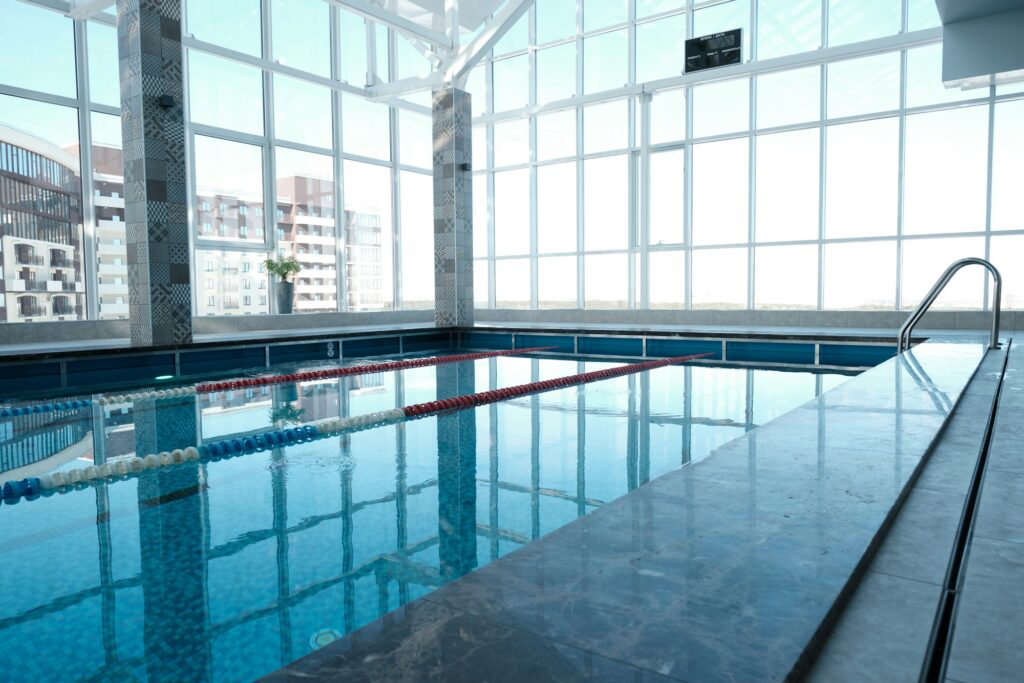
How does it work and why is pool filtration essential?
The filtration system is the heart of any pool. Its main function is to remove dirt particles and other debris that enter the pool, from leaves to microscopic microorganisms.
Types of filters
- Sand filters: These are the most common and work by passing water through a layer of sand that traps impurities.
- Cartridge filters: They are easier to clean and replace, ideal for those looking for simple maintenance.
- Diatomaceous earth filters: These are the most efficient and can trap extremely small particles, but require a little more maintenance.
How often should I clean the filter?
The frequency of cleaning depends on the type of filter you use and the amount of use the pool receives. Generally, sand and cartridge filters should be checked weekly and cleaned at least once a month. If your pool gets a lot of use or is surrounded by trees, you may need to do this more frequently.
Keeping the filter clean ensures that the water is kept moving and free of debris, which reduces the risk of bacteria and algae growth. Remember that a clogged filter will cause the pumping system to overwork, which can lead to failure.
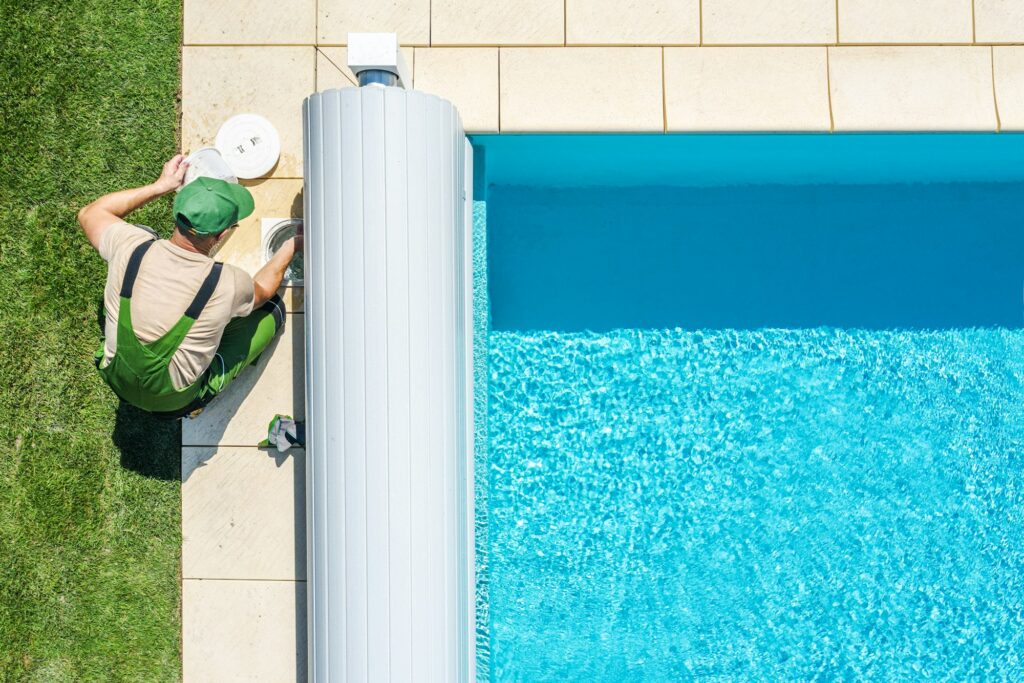
How can I control the pH and chemical balance of my pool?
The chemical balance of the water is crucial to prevent skin and eye irritation to swimmers and to protect the integrity of the pool components
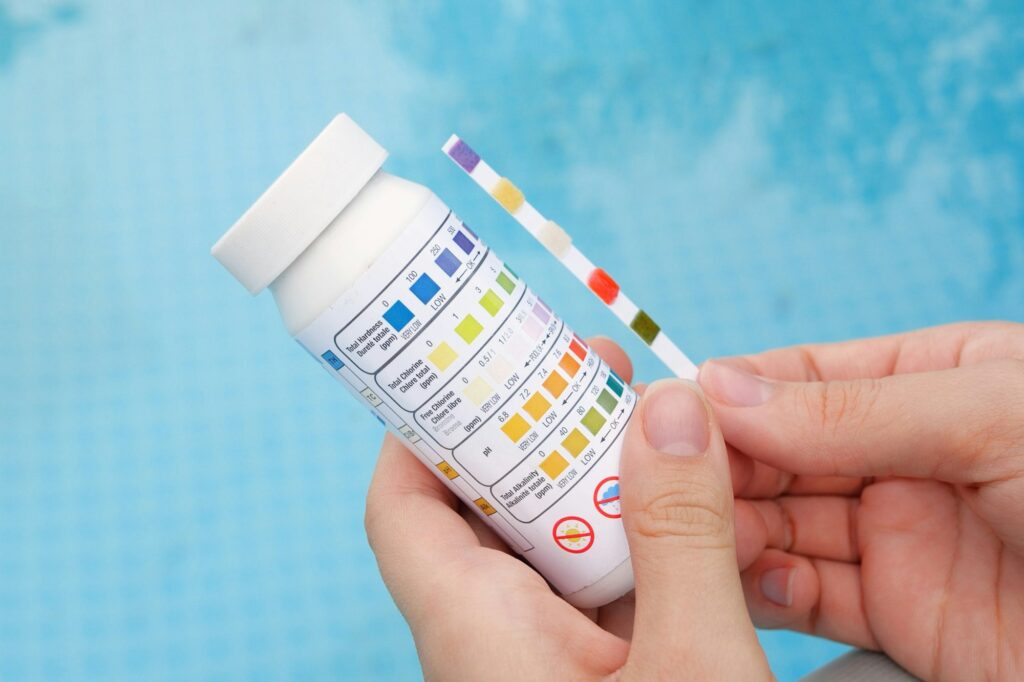
What is pH and how does it affect pool water?
The pH is a measure of how acidic or alkaline the water is. The ideal range for a pool is between 7.2 and 7.6. If the pH is too low (acidic), it can cause skin and eye irritation, as well as corrode metal pool surfaces. If it is too high (alkaline), the water will become cloudy and chemicals, such as chlorine, will be less effective.
How can I measure the pH of my pool?
Use a test kit or test strips to check the pH level at least once a week. If the pH is outside the recommended range, you can adjust the levels using specific products, such as a pH increaser or pH reducer, which are easily found at pool supply stores.
What other chemicals do I need to maintain my pool?
In addition to chlorine, which is the primary sanitizer, you may need algaecides to prevent algae growth, flocculants to clump small particles and clarifiers to keep the water crystal clear. Remember, each pool is unique and chemical needs may vary depending on factors such as climate and frequency of use.What tools are needed to clean a pool?
Apart from the filtration system and chemicals, the physical cleaning of the pool is an essential part of the maintenance.
Here are some examples of key tools for a spotless pool:
Essential tools for cleaning
- Wall and bottom brush: Perfect for removing dirt and algae that clings to the walls and floor.
- Leaf catcher net: Ideal for removing floating debris, such as leaves and twigs, before they reach the filtration system.
- Pool vacuum cleaner: Can be manual or automatic, and is essential for vacuuming dirt from the bottom.
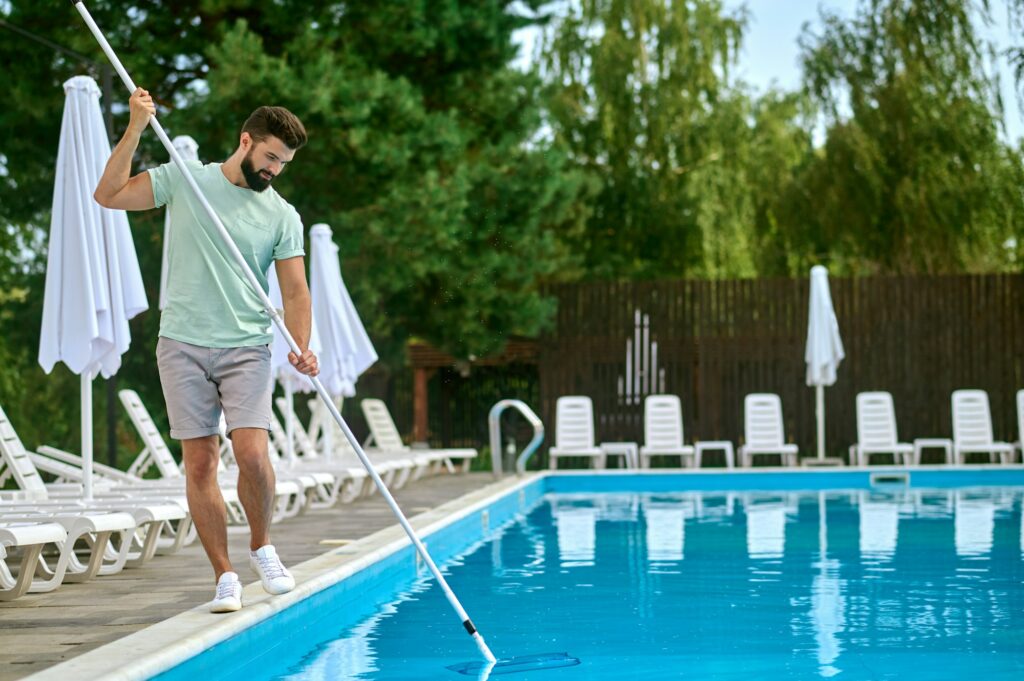
What is better, to clean the pool manually or with automatic vacuum cleaners?
Automatic pool cleaners are an excellent investment if you want to reduce manual cleaning time. However, periodic manual cleaning is still necessary for hard-to-reach areas.
Using both options in combination is ideal for keeping your pool effortlessly clean.
How often should I maintain my pool?
Pool maintenance varies by season and frequency of use, but here is a basic schedule to help you keep your pool in perfect condition.
Daily tasks
- Check the water level and make sure the pump is working properly.
- Remove leaves and other floating debris with a net.
Weekly tasks
- Check and adjust pH and chlorine levels.
- Brush pool walls and bottom to prevent algae buildup.
- Clean filters as needed.
Monthly tasks
- Check equipment, such as the pump and filtration system, to make sure it is working properly.
- Apply preventive treatments such as algaecides and clarifiers.
Seasonal maintenance
At the end of the season, perform a thorough cleaning and drain some of the water if you live in an area where cold weather can damage the pool structure.
What else can I do to extend the life of my pool?
Should I use a pool cover?
A cover not only protects the pool from dirt, but also helps maintain water temperature, reduces evaporation and reduces chemical consumption.
What else should I check periodically?
In addition to the filtration system and pH level, be sure to check the seals, pumps and other mechanical components to avoid costly damage.
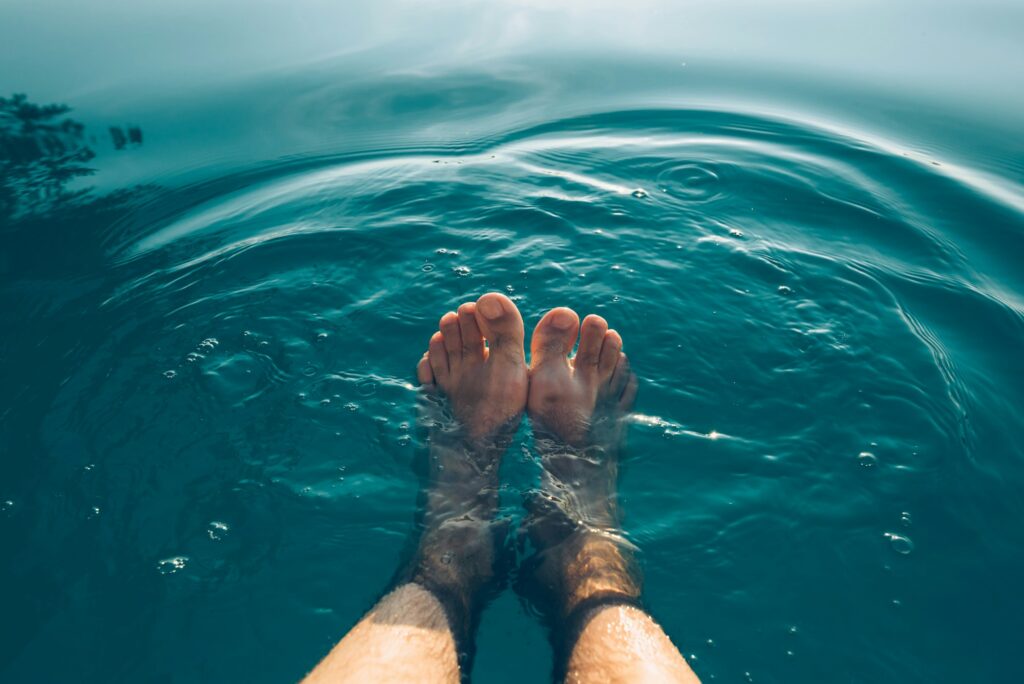
Keeping your pool in top condition is not complicated if you follow a consistent routine. With a good filtration system, proper pH control, use of chemicals and regular cleaning, you will have crystal clear, safe water.
This maintenance not only improves water quality, but also prolongs the life of your pool. Whether you’re a beginner or looking to improve your routine, this guide will give you the basics to enjoy a perfect pool year-round.
Ready to keep your pool pristine? Follow these steps and enjoy a perfect pool all year round, Keeping your pool in top condition is not complicated if you follow a consistent routine. With a good filtration system, proper pH control, use of chemicals and regular cleaning, you will have crystal clear, safe water.
This maintenance not only improves water quality, but also prolongs the life of your pool. Whether you’re a beginner or looking to improve your routine, this guide will give you the basics to enjoy a perfect pool year-round.
Ready to keep your pool pristine? Follow these steps and enjoy a perfect pool all year round, contact us if you have any questions!



